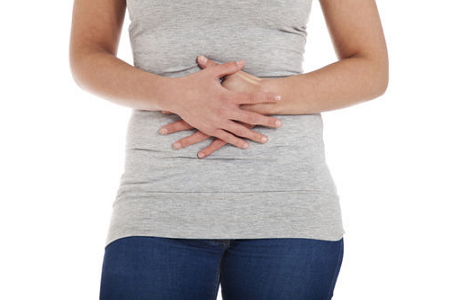Period After Pregnancy

Contents:
- Period After Pregnancy and Childbirth
- Why Your Period Doesn’t Return Right After Baby Birth?
- When to Expect the First Period After the Baby Birth?
- Does the Absence of Period After the Childbirth Equal Effective Contraception?
- How Does the Period Recommence After Pregnancy?
Period After Pregnancy and Childbirth
The return of the period after pregnancy is an important moment for every woman, because period is an indicator of her health.
Why Your Period Doesn’t Return Right After Baby Birth?
The hormones in woman’s body change rapidly after the baby birth, making the body adjust to the new conditions. The body increases production of prolactin, a hormone that stimulates lactation. This very hormone causes amenorrhea, an absence of menstrual period after a baby birth. High levels of prolactin slow down the ovaries and ovulation doesn’t happen. This is the nature’s way of taking care of a mom and her baby, as all of mom’s energy must be directed at the baby so there are no conditions for the fertilization.
When to Expect the First Period After the Baby Birth?
Start of the period after pregnancy depends on many factors: a woman’s body, the quality of lactation, and stress factors.
- If a baby is breastfed without formula, then the period won’t occur until the lactation is stopped;
- If a woman continues to breastfeed for more than a year, then the period might return during the lactation period;
- If a woman doesn’t breastfeed due to some reasons, the first ovulation occurs 9-11 weeks after the baby birth, meaning that the first period will start after 11-13 weeks or in 3 months. Very often in this case the first period is anovulatory, which means that the period occurs without ovulation;
- If there is no enough breast milk and baby is mix fed (breast milk + formula), then period most likely to return during the 4th or 5th months;
- The mode of delivery doesn’t really affect the start of your period. So if you had a caesarean delivery your period will return at about the same time as if you have had a vaginal delivery. It mostly depends on the breastfeeding. The only exclusion is a complicated childbirth, where a postnatal haemorrhage, endometritis, sepsis or other complications affect the start of the period. These complications slow down the involution (recovery) of the uterus, causing the first period to come later.
Let us repeat again that the timeframes stated above are only guidelines. Every woman’s body is unique, which means that a period will return at its own pace (that usually is close to these guidelines).
Does the Absence of Period After the Childbirth Equal Effective Contraception?
Unfortunately, that’s not true. Many young couples, having believed that absence of period guarantees absence of ovulation, refuse to use contraception and end up getting pregnant. So why does it happen?
The fact is that period comes after the ovulation, but your body doesn’t notify you about the ovulation. You can’t know whether your hormonal cycle is fully restored, so if you have a regular sex life after the childbirth and you don’t use contraception, you might get pregnant again. It’s especially annoying because you can’t suspect pregnancy by a period delay, as you would have done in a normal situation. That’s why many women find out about their pregnancy when it’s too late.
How Does the Period Recommence After Pregnancy?
Usually a period, when it returns after childbirth, has normal cycle and length. Some minor deviations like a shorter or longer period and heavy or light period are ok. Still, you better be on alert and let your doctor know about these differences in your period. Only a doctor can confirm that, for example, a heavy period is not an endometrial hyperplasia.
A menstrual cycle can change after childbirth, for example it can get longer. Make sure that it is within the normal timeframes. Normal timeframe is a regular period every 21-34 days, which lasts for 4-6 days with a blood loss up to 20-80 grams (up to 6 table spoons).
A period can have physiological changes after childbirth. For instance, if a woman used to have a painful period, it can become painless after childbirth. It relates to the change of the uterine position in the pelvic cavity, where the menstrual blood can flow freely without obstacles. Quite often, the period becomes more “sharp” coming on the right day of the cycle.